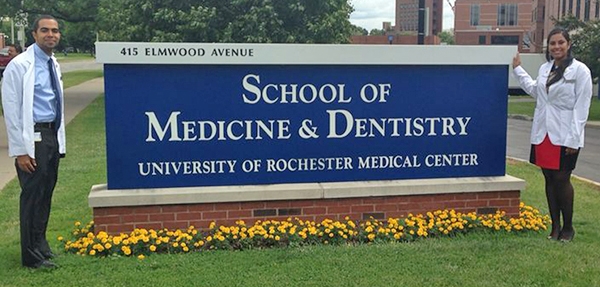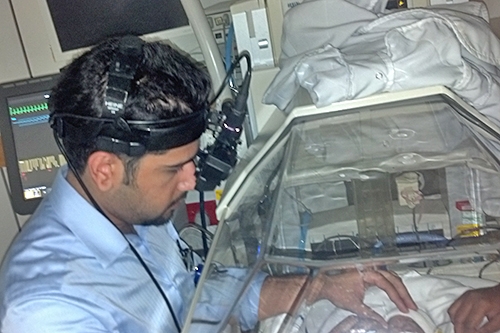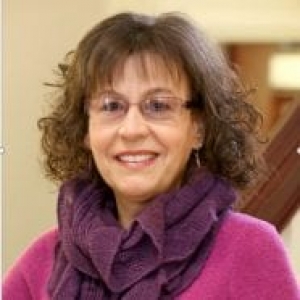If it weren’t for one Union program, Kenia Valdez ’12 would not be where she is today—at the University of Rochester School of Medicine and Dentistry.
“The AOP program meant everything to me,” she said. “It was only because of its existence that I was even able to attend college.”
Over the last 45 years, the Academic Opportunity Program, together with the Arthur O. Eve Higher Education Opportunity Program, has helped catapult students to success in myriad disciplines. Valdez’s field, the highly competitive area of medicine, is just one such discipline.
Both programs were established at Union in 1969 with the same mission: To admit students with great potential whose economic and academic situations might otherwise prevent them from going to college.
“AOP was the brainchild of former Union President Harold Martin, and his counterparts at Skidmore and RPI, to increase the number of underrepresented students on campus. To this day it is funded by the College,” said Philip Poczik, AOP/HEOP director. “HEOP was the brainchild of Arthur O. Eve, former deputy speaker and member of the New York State Assembly. Union has been a member of the program, partially funded by a grant from the State Education Department, since its inception.”
“HEOP’s economic criterion for acceptance into the program, as established by the state, is 185 percent of the federal poverty income level. The academic criterion is that students cannot meet the College’s standard admission profile,” he continued. “We mirror these criteria for AOP. We seek to enroll 30 students—15 in HEOP, 15 in AOP—each year.”
And over the years, these students have gone on to do well for themselves in everything from engineering (for Boeing and Honda Motors, for example) to teaching to music therapy to social work to health professions.
“I have always wanted to be a physician, I love working with people and helping others in their time of need,” said Valdez, who majored in biology at Union. “AOP gave me all the support—financial, professional, emotional—I needed to make this dream possible.”
Dr. Syed Amal Hussnain ’08, an ophthalmology resident at Yale-New Haven Hospital, echoed these sentiments. HEOP gave him the financial means he needed to attend Union, and thrive beyond its gates.
“We know that when given equal opportunity, people of any race, color or ethnicity can excel by practicing traits such as hard work, perseverance and self-confidence,” he said. “In general, that is precisely what AOP/HEOP tries to do for all its students. The programs provide an opportunity and a framework, and that is certainly what HEOP did for me.”
“It helped me gain confidence and adjust in a new country and culture by making me part of the tightly-knit AOP/HEOP group,” Hussnain continued. “I was born in Brooklyn, but moved to Pakistan when I was one year old. We moved back, to Watervliet, N.Y., when I was 16.”
The tools AOP/HEOP uses to build such confidence in students are many. There’s the five-week pre-freshman summer program all AOP/HEOP students must complete to help them prepare for the rigors of college life. There’s the professional development class that’s required during sophomore year, workshops on financial literacy and graduate school preparation, and tutoring provided to all students in all subject areas. And, Poczik said, each young person is assigned an advisor to assist—one-on-one—with academic, financial, social and personal mentoring.
AOP/HEOP students interested in health professions also benefit from the fact that they’re often in close proximity to appropriate staff and faculty in that field from the get-go. The Health Professions office is located within the AOP/HEOP suite.
This allows Carol Weisse, Health Professions director, and her staff to get to know these students early on and help them develop the skills they’ll need to thrive.
“The factors that contribute to the success of AOP/HEOP students interested in pursuing a health profession are similar to those factors that are necessary for any student seeking entry in to a highly competitive field,” she said. “Students need to have a strong work ethic, excellent time management abilities, outstanding interpersonal skills, and the ability to succeed on standardized tests. They also need to seek out opportunities for developing themselves personally and professionally.”
“The Health Professions office promotes this professional development by offering educational programs,” Weisse added. “We provide a health care practicum course that places students in community health settings, and we coordinate visits to major metropolitan areas where students can tour health profession schools and network with alumni and admissions representatives too.”
Her former students are immensely grateful to Weisse, and to Poczik and all Union faculty and staff, for this support.
“It is incredible that our Health Professions program was able to work with me and provide the information, counseling and resources to apply and get accepted to medical school,” said Hussnain, who graduated from Weill Cornell Medical College in 2013. “There’s a lot more than a good GPA and MCAT score—like volunteer work, clinical experience, research and interviewing skills—that make a successful application.”
Valdez agrees.
“Professor Weisse was an amazing resource. She met with me regularly, helped me find volunteer opportunities and gain experience,” said the first-year med student, who is considering specializing in obstetrics and gynecology. “Professor Weisse was also honest, which is important, and highlighted my strengths and weaknesses and made me the most competitive applicant I could be.”
To Derrick German ’12, a first-generation college graduate who studied biology at Union, all this support was like having a second set of parents.
“It is difficult to convey how grateful I am for having been allowed to be part of the HEOP program, it opened doors for me in my life that I would otherwise not have had,” he said. “The AOP/HEOP program staff served as my family away from home.”
When I got my first job, did well on my MCAT, when I was lucky enough to struggle with the choice of picking a medical school, the staff were some of the first to know,” added German, who is interested in the specialties of surgical oncology, family medicine, and pain and palliative medicine.
The College also did something else for the University of Rochester School of Medicine & Dentistry student—it allowed him to maintain and strengthen a very special relationship.
German and Valdez, both from the Bronx, were dating before they enrolled at Union. They are acutely aware of how lucky they are to have been able to matriculate into the same undergraduate school and the same medical school.
“Over the eight years we have been together, we have relied a lot on each other for support, motivation and direction,” German said. “I think Kenia has been, and will continue to be, an instrumental part of my success. Union provided us the opportunity to pursue our goals together, and that’s incr



